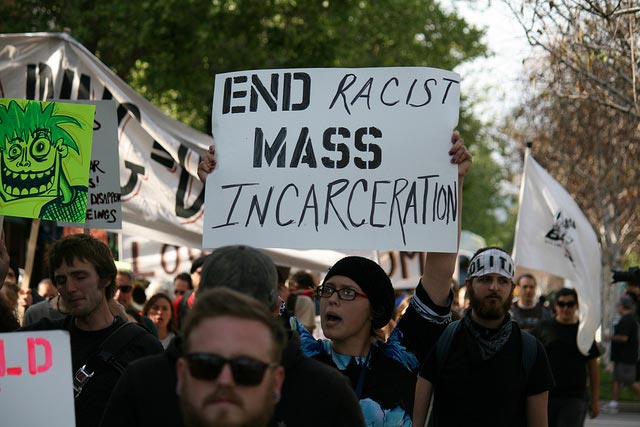
On December 18, the University of California system quietly dropped a big bomb: It will sell off its $30 million worth of investments in private prison corporations by the 31st of December, thanks to considerable pressure from student groups. The move is a huge step for organizations concerned about inequalities in the justice system and the conditions at for-profit prisons, which definitely generate funds for shareholders, but don’t provide adequate living conditions for their detainees. The Afrikan Black Coalition is largely responsible for the divestment, as the group was the one to put forward a resolution demanding the sale, and representatives of the ABC met with UC officials to discuss disposing of the investments in an orderly fashion – typically divestment begins quietly before official announcements, to avoid creating instability in stock prices.
The University of California system has opted to divest holdings in controversial or harmful corporations before, as for example in 2006, when it dropped firms with investments in South Sudan, and earlier this year, when it pulled out of $200 million in oil and tar sands investments. As an economic tool, divestment sends an extremely powerful message, especially when it comes from huge institutional investors like statewide university systems. Mass sell-offs like this one can be used as grounds for other organizers to pressure different institutions to make similar moves, and they also set a model for other institutional investors considering ethical financial practices. In this instance, Columbia University set the bar by dropping for-profit prison investments over the summer. Choosing to be selective not just about stock performance but social impacts is also part of the UC’s investment model.
Dropping these investments will be a blip in the system’s massive portfolio of stock, but advocates say it’s the right thing to do. The prison system is plagued with racial and economic inequalities that contribute to a disproportionate number of incarcerated people of color and low-income people, with considerable overlap between these two groups. Between issues like racial profiling, fewer resources for judicial defense, and prejudices within the legal system, people are unjustly incarcerated simply for the crime of not being white. For-profit companies like Corrections Corporation of America have taken advantage of the growing privatization of the prison industry to generate $1.7 billion in revenue in 2011 alone. Geo Group, Inc. also generates substantial profits for shareholders annually through its networks of jails, prisons and immigration detention facilities. UC will be selling off all its shares in both.
These companies function not as public enterprises, but as corporations with the goal of cutting costs wherever possible. Many have substandard physical plants, insufficient staff, inadequate prison health care and food, high rates of physical and sexual assault, and other systemic problems. Even “three hots and a cot” isn’t guaranteed behind their walls, and in 2012, the Supreme Court actually limited the ability to sue private prisons for civil rights violations. This leaves prisoners with even fewer resources to advocate for their rights and safety behind bars. While groups like the ACLU advocate and litigate for prisoners stuck on the inside, one of the best ways to strike at the heart of the private prison system is to make it less profitable with steps like dumping shares and making it a toxic investment for potential institutional investors.
This move is a strong indicator that the UC system remains committed to regularly evaluating investments and determining whether it wants to continue sinking funds into endeavors that violate ethical guidelines. It also illustrates that organized and highly active student groups can make a big difference not just on campus, but in the world in general. With protest movements like Black Lives Matter getting more active and noisy in recent years, it’s clear that the next generation of youth is growing up with a mission to make the world a better place, and the courage to lobby those most in a position to do so.
Join us in defending the truth before it’s too late
The future of independent journalism is uncertain, and the consequences of losing it are too grave to ignore. To ensure Truthout remains safe, strong, and free, we need to raise $43,000 in the next 6 days. Every dollar raised goes directly toward the costs of producing news you can trust.
Please give what you can — because by supporting us with a tax-deductible donation, you’re not just preserving a source of news, you’re helping to safeguard what’s left of our democracy.